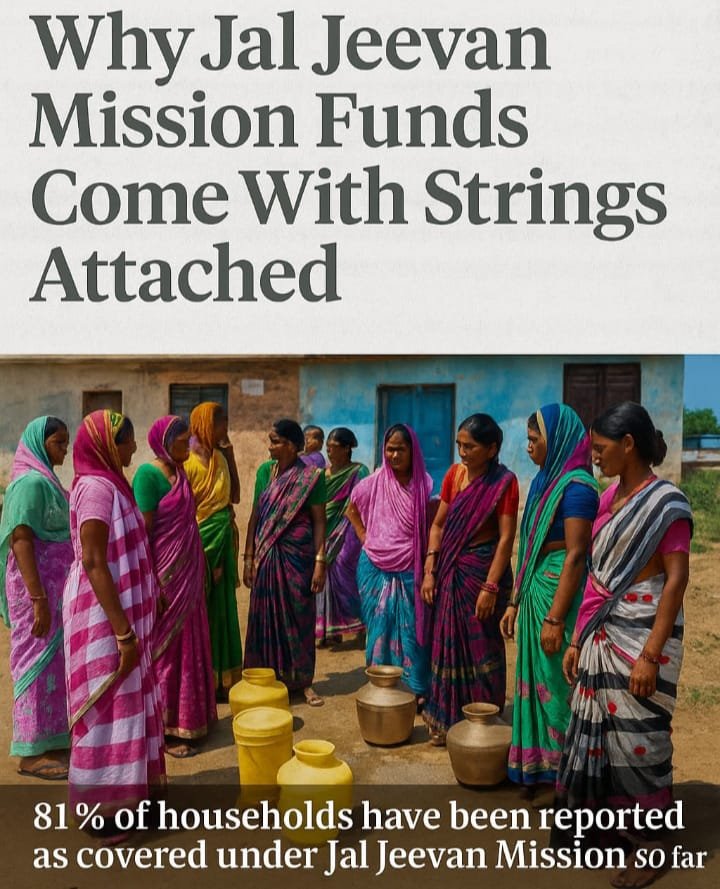
The Jal Jeevan Mission, launched in 2019 by the Indian government, is one of the country’s most ambitious rural infrastructure projects. Its goal is simple yet vital: to provide piped drinking water to every rural household in India. As of now, about 81% of these households have been covered. While this progress is impressive, the work is not yet complete. With the original deadline of 2024 fast approaching, the Centre has extended the scheme until 2028. However, this extension comes with stricter funding norms and tighter scrutiny.
From now on, only those states that follow guidelines strictly will continue to receive central funds. The Union government has made it clear that it will not pay for cost overruns, design changes, or work done beyond the approved scope. This approach aims to ensure that resources are used efficiently and that money is not wasted on poorly planned or unsustainable projects.
One key policy shift is the clear definition of "central liability." The central government will continue to fund 50% of the total cost for approved projects. However, if any project exceeds its budget, or fails to meet technical and environmental standards, the entire additional cost will have to be borne by the state.
Additionally, projects that rely on unreliable or unsustainable water sources will not qualify for funding. To be eligible, a project must use a sustainable water source—meaning it should be naturally recharged or supported by conservation practices. These include rainwater harvesting, greywater recycling, and other water-saving methods.
In a letter to all states and Union Territories, the Union Ministry of Jal Shakti stated that future central grants will only be released after proper approvals and strict verification. The Ministry is now conducting a detailed review of both ongoing and proposed projects across the country to ensure they comply with the rules.
This increased scrutiny is already affecting several states. For example, in Maharashtra, the state government has halted the awarding of new Jal Jeevan contracts after October 2024. The Centre has informed the state that it must fund any pending projects from its own budget. Maharashtra already has ₹12,000 crore in unpaid bills, and over 26,000 projects remain incomplete. Cost estimates for more than 7,000 of these have already been revised.
Without fresh central assistance, the state faces delays in project completion. Officials have also raised concerns about maintaining quality under budget pressure.
Despite these challenges, the Jal Jeevan Mission remains a landmark initiative. It has already improved access to safe drinking water in many rural communities. But as it enters its next phase, the focus is clearly shifting from expansion to accountability, quality, and sustainability.
The mission is no longer just about laying pipelines. It is about building a water-secure future for every citizen. And in this new phase, the Centre’s message is firm: funding will follow rules, responsibility, and results.





















